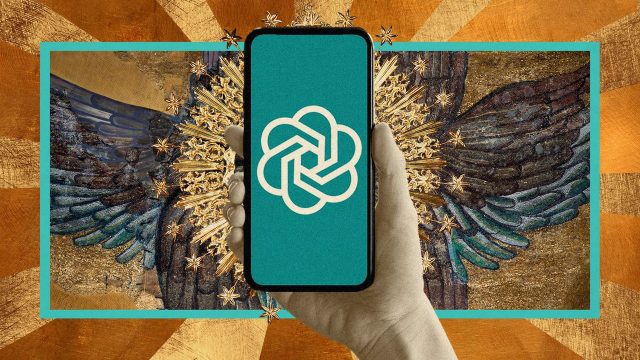
With forecasts that artificial intelligence will steal our jobs and take over the world, you could be forgiven for thinking that it’s playing God – and on some new apps that’s exactly what it’s doing.
A “slew” of religious apps are encouraging “untold millions” to “confess to AI chatbots”, said Futurism, and some of the digital services “claim to be channelling God himself”.
‘Greetings, my child’
Apple’s App Store is “teeming” with religious apps. One of them, called Bible Chat, claims to be the number one faith app in the world, with more than 25 million users. “Hallow, a Catholic app, beat Netflix, Instagram and TikTok for the No. 1 spot in the store at one point last year”, said The New York Times.
Bible Chat’s website insists that its AI was “trained exclusively” and developed with “guidance” from pastors and theologians. But smaller outfits have trained chatbots to go a step further and specifically “respond as if they were a god”, which some people feel is “sacrilegious”.
Patrick Lashinsky, chief executive of one such website, ChatwithGod, said: “The most common question we get, by a lot, is: Is this actually God I am talking to?” When The New York Times writer asked the app if it was, in fact, God, it replied: “Greetings, my child.”
‘Cheap parlour tricks’
Some of these services are “not much more than a cheap parlour trick behind the scenes”, said Futurism. They’re “essentially reshuffling holy texts by using clever statistical modelling”, and AI’s “strong tendency to please the user” could have “unintended consequences”.
Too much faith in AI is a dangerous path, said Paul Kingsnorth in The Wall Street Journal. “We can remember that God, however mysterious, is the ultimate force in the world – or we can continue attempting to replace him. All the old stories … are clear about the consequences of that particular act of hubris.”
But some of these services are “addressing an access problem”, said The New York Times. “For millenniums, people have longed for spiritual guidance”, but they’ve had to “travel, sometimes great distances, to reach spiritual leaders”. By contrast, chatbots are “at a user’s fingertips, always”.
In the US, around 40 million people have left churches in the past few decades, so these apps may “lower the barrier to re-enter spiritual life”. In Britain, “there’s a whole generation of people who have never been to a church or synagogue”, said Rabbi Jonathan Romain, from Maidenhead Synagogue, so spiritual apps can be “their way into faith”.
These chatbots are “generally ‘yes men’”, said Ryan Beck, chief technology officer at Pray.com, but he doesn’t feel this is a problem. “Who doesn’t need a little affirmation in their life?”
New chatbots are aimed at creating a new generation of believers






